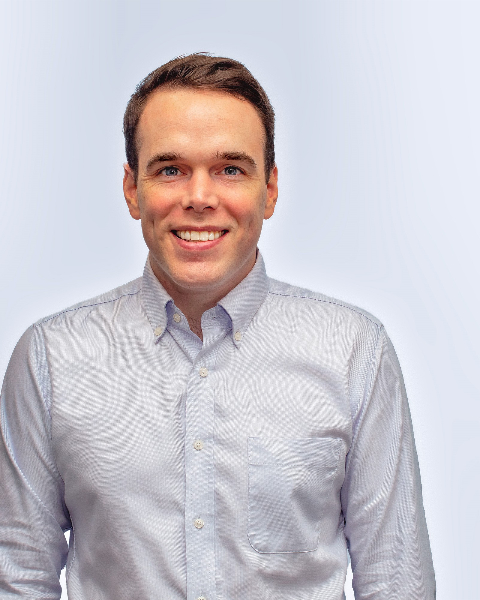Technology/Digital Health
Symposium 124 - Technology-Led, Human-Centered Innovations In Treating Major Depressive Disorder
Level of Familiarity: All
Recommended Readings: Stade, E. C., Stirman, S. W., Ungar, L. H., Schwartz, H. A., Yaden, D. B., Sedoc, J., … Eichstaedt, J. C. (2023). Artificial intelligence will change the future of psychotherapy: A proposal for responsible, psychologist-led development. https://doi.org/10.31234/osf.io/cuzvr, Wilhelm S, Bernstein EE, Bentley KH, Snorrason I, Hoeppner SS, Klare D, Greenberg JL, Weingarden H, Harrison O. Feasibility, acceptability, and preliminary efficacy of a smartphone app-led cognitive behavioral therapy for depression under therapist supervision. JMIR Mental Health. 2024.,
Bohr, Y., Litwin, L., Hankey, J. R., McCague, H., Singoorie, C., Lucassen, M. F., ... & Barnhardt, J. (2023). Evaluating the Utility of a Psychoeducational Serious Game (SPARX) in Protecting Inuit Youth From Depression: Pilot Randomized Controlled Trial. JMIR Serious Games, 11(1), e38493.
, Ezawa ID, Hollon SD, Robinson N. Examining Predictors of Depression and Anxiety Symptom Change in Cognitive Behavioral Immersion: Observational Study. JMIR Ment Health 2023;10:e42377. doi: 10.2196/42377,-

Emily Bernstein, Ph.D. (she/her/hers)
Clinical Psychologist
Massachusetts General Hospital/Harvard Medical School
SOMERVILLE, Massachusetts, United States -
JJ
Jessica Jackson, Ph.D. (she/her/hers)
Therapy Is For Everyone Psychological & Consultation Services
Houston, Texas, United States -
.jpg)
Sabine Wilhelm, Ph.D. (she/her/hers)
Professor, HMS; Chief of Psychology, MGH; Director, Center for Digital Mental Health, MGH
Harvard Medical School
Boston, Massachusetts, United States -
YB
Yvonne Bohr, Ph.D. (she/her/hers)
York University
Toronto, Ontario, Canada -

Noah Robinson, M.S. (he/him/his)
Innerworld, Inc.; Vanderbilt University
Antioch, Tennessee, United States -
JE
Johannes Eichstaedt, PhD (he/him/his)
Assistant Professor
Stanford University
PALO ALTO, California, United States -

Emily Bernstein, Ph.D. (she/her/hers)
Clinical Psychologist
Massachusetts General Hospital/Harvard Medical School
SOMERVILLE, Massachusetts, United States
Chair(s)
Discussant(s)
Presenter(s)
Affecting nearly 20% of the population, Major Depressive Disorder (MDD) is the most common mental health disorder and the leading cause of the burden of illness worldwide. Even more people struggle with subthreshold symptoms and would benefit from early detection and intervention. Yet, an estimated one third to one half of people in the United States with MDD are unable to access any treatment, even fewer around the world, and fewer still are able to access high quality, evidence-based care like CBT. There is a clear need for more accessible, scalable, and resource-effective tools for detecting and treating MDD. Promising solutions will meet two key criteria. First, solutions must minimize clinician burden; there is a staggering shortage of providers, so real solutions to the treatment gap must reduce or even eliminate the clinician hours needed for success. Second, solutions must be personalized. Although decades of work show CBT to be highly effective overall, outcomes remain limited; rates of response and sustained remission are too low and entire communities have been historically left out of treatment development and evaluation research.
The goal of this symposium is to introduce researchers, clinicians, and patients to some of the most exciting new directions in digital mental health research for MDD that meet these criteria and we believe will lead to critical progress in this area. The symposium highlights research that can directly inform how we design, implement, and optimize tools for real clinical practice. Over the past few years, advances in smartphone technology, computational modeling, machine learning/artificial intelligence, and translational research have led to a complete revitalization and tremendous leaps in research that could truly reduce the personal and societal burden of this highly prevalent and impairing disorder.
Audience members will learn about a new therapist-guided smartphone app-led CBT for depression that highlights how academics can effectively partner with industry to develop clinically rigorous and commercially sustainable tools. Second, they will then learn about culturally-tailored CBT-based video games for youth from diverse contexts that highlight best practices for deep community engagement and partnership. Third, the audience will experience how a social virtual reality environment (“the metaverse”) can be used to deliver cognitive behavioral peer support and learn about real world testing and iteration. Fourth, the audience will be introduced to innovations in applying artificial intelligence to this mental health crisis, with attention to human-centered approaches. Finally, the audience will consider how digital engagement should be operationalized to enhance understanding of patients’ behavior and treatment optimization. The symposium will end with a broader discussion of how to leverage these innovations to reach real people and keep equity, integrity, and impact in mind.
Together, these talks will offer insight into patients with MDD actually use digital tools, where tangible progress has been made in improving access as well as where some may struggle to connect or respond, and what the future holds for dynamic, personalized solutions at our fingertips.
Learning Objectives:
- Define the core treatment components and targets of CBT for depression.
- Summarize key barriers to access and impact for CBT for depression.
- Outline 3 strategies for leveraging technology to enhance treatment access.
- Describe 3 strategies for leveraging technology to enhance treatment personalization and response.
- Identify 3 challenges to the success of novel technologies in monitoring and treatment depression.
Presentations:
-
8:30 AM - 10:00 AM EST(SYM 124) Feasibility, Acceptability, and Preliminary Efficacy of a Smartphone App-led Cognitive Behavioral Therapy for Depression Under Therapist Supervision
Speaker: Sabine Wilhelm, Ph.D. (she/her/hers) – Harvard Medical School
Co-author: Emily E. Bernstein, Ph.D. (she/her/hers) – Massachusetts General Hospital/Harvard Medical School
Co-author: Kate H. Bentley, Ph.D. (she/her/hers) – Massachusetts General Hospital/Harvard Medical School
Co-author: Ivar Snorrason, PhD (he/him/his) – Massachusetts General Hospital / Harvard Medical School
Co-author: Susanne S. Hoeppner, Ph.D., M.Ap.Stat. – Massachusetts General Hospital
Co-author: Thomas McCoy, MD – Massachusetts General Hospital / Harvard Medical School
Co-author: Oliver Harrison, MA, MBBS, MPH – Koa Health
Co-author: Dalton Klare, M.A., M.S. (he/him/his) – Massachusetts General Hospital
Co-author: Jennifer L. L. Greenberg, Psy.D. – Massachusetts General Hospital/Harvard Medical School
Co-author: Hilary Weingarden, Ph.D. (she/her/hers) – Massachusetts General Hospital
-
8:30 AM - 10:00 AM EST(SYM 124) Adapting a Cbt-based Video Game for Inuit Youth in Nunavut: Lessons Learned from a Community-directed Mental Wellness Project in the Canadian North
Speaker: Yvonne Bohr, Ph.D. (she/her/hers) – York University
Co-author: Alaina Thomas, MA (cand) (she/her/hers) – York University
Co-author: Marette Abdelmaseh, MA, PhD (cand) (she/her/hers) – York University
Co-author: Jenna Barnhardt, MA, PhD (cand) (she/her/hers) – York University
Co-author: Leigh Armour, MSW (she/her/hers) – Strides
Co-author: Reuben Qaunaq, Community member (he/him/his) – York University
-
8:30 AM - 10:00 AM EST(SYM 124) Bridging the Therapy Gap in Major Depressive Disorder: A Feasibility Pilot of Cognitive Behavioral Immersion in the Metaverse
Speaker: Noah Robinson, M.S. (he/him/his) – Innerworld, Inc.; Vanderbilt University
Co-author: Iony D. Ezawa, Ph.D. (she/her/hers) – University of Southern California
Co-author: Steven D. Hollon, Ph.D. (he/him/his) – Vanderbilt University
-
8:30 AM - 10:00 AM EST(SYM 124) CBT-AI Companion: An Application for More Engaging and Effective CBT Practice
Speaker: Johannes Eichstaedt, PhD (he/him/his) – Stanford University
Co-author: Aadesh Salecha, M.S. (he/him/his) – Stanford University
Co-author: Zoe Tait, B.A. (she/her/hers) – Stanford
Co-author: Philip Held, Ph.D. (he/him/his) – Rush University Medical Center
Co-author: Betsy Stade, PhD – Stanford University
Co-author: Huy Vu, PhD – Stony Brook University
Co-author: Cody Boland, PhD – VA Palo Alto Health Care System
Co-author: Shannon Wiltsey Stirman, Ph.D. – National Center for PTSD and Stanford University
-
8:30 AM - 10:00 AM EST(SYM 124) Use of “therapy in Your Pocket”: Patterns of Skills Review in Smartphone Cognitive Behavioral Therapy (CBT) for Depression
Speaker: Emily E. Bernstein, Ph.D. (she/her/hers) – Massachusetts General Hospital/Harvard Medical School
Co-author: Katharine Daniel, MA – MGH/Harvard Medical School
Co-author: Peyton E. Miyares, B.A. – Massachusetts General Hospital
Co-author: Susanne S. Hoeppner, Ph.D., M.Ap.Stat. – Massachusetts General Hospital
Co-author: Kate H. Bentley, Ph.D. (she/her/hers) – Massachusetts General Hospital/Harvard Medical School
Co-author: Ivar Snorrason, PhD (he/him/his) – Massachusetts General Hospital / Harvard Medical School
Co-author: Lauren Fisher, PhD (she/her/hers) – Massachusetts General Hospital / Harvard Medical School
Co-author: Jennifer L. L. Greenberg, Psy.D. – Massachusetts General Hospital/Harvard Medical School
Co-author: Hilary Weingarden, Ph.D. (she/her/hers) – Massachusetts General Hospital
Co-author: Oliver Harrison, MA, MBBS, MPH – Koa Health
Co-author: Sabine Wilhelm, Ph.D. (she/her/hers) – Harvard Medical School

.png)
